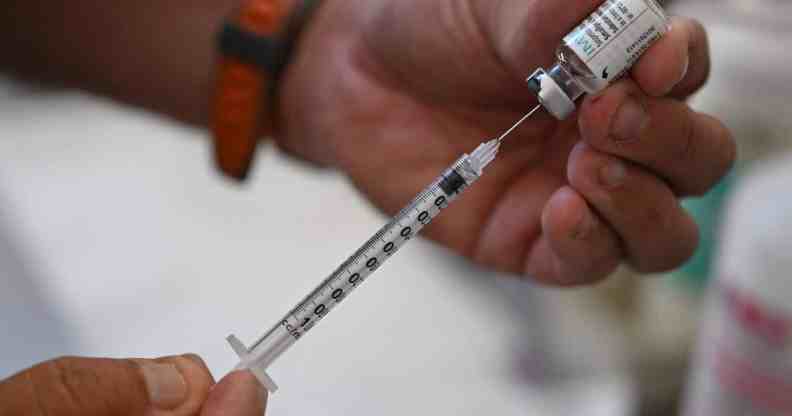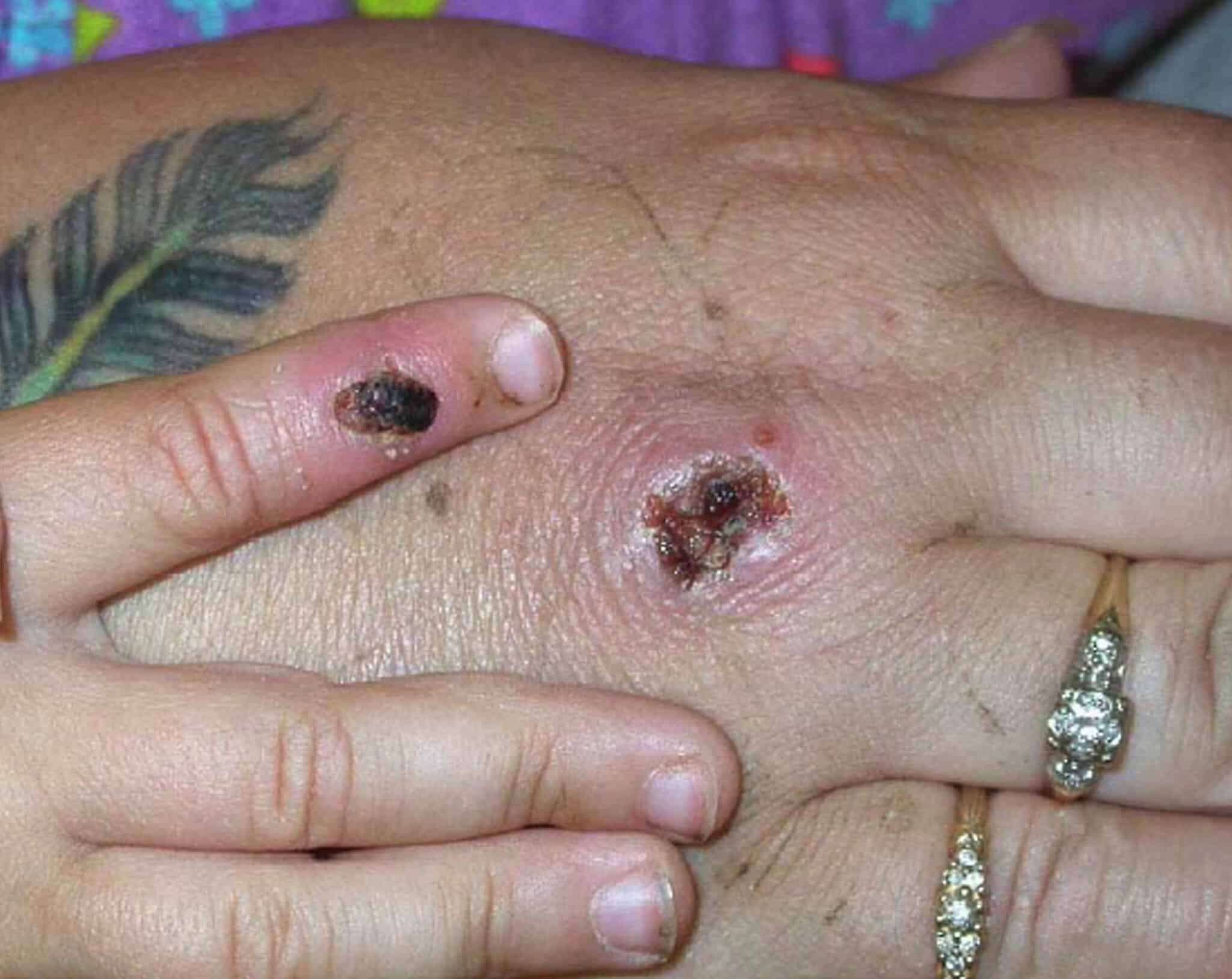Monkeypox: Gay men in India refusing testing and treatment over fear of being outed

Monkeypox: Stigma driving cases underground in India (Christophe Simon/AFP via Getty Images)
Stigma towards the LGBTQ+ community in India is reportedly driving cases of monkeypox underground, with some refusing to get tested due to concerns about being outed as gay.
Experts have repeatedly explained why monkeypox is not a so-called “gay disease” and how anybody can contract it, but the recent outbreak has proven to be more prevalent among gay and bisexual men.
This has led to the World Health Organization (WHO) revealing in countries where homophobia is rife, the virus is “much harder to track, and to stop”.
Two months before India officially reported its first cases of monkeypox, The Hindustan Times has reported, Mumbai doctor Ishwar Gilada suggested two of his patients, a gay man and a bisexual man, get tested. Both refused.
Dr Gilada, who opened India’s first AIDs clinic in 1986, said he’s seen patients who don’t want to be reported among the first monkeypox cases in India, forcing them to “go underground”.
After a young man in Kerala, India, died of monkeypox, the federal government formed a task force to look into the reasons why the man delayed seeking medical help.
Authorities careful not to ‘out’ individuals over monkeypox
Dr Gilada explained that health authorities are using contact tracing methods similar to those used during the COVID-19 pandemic to find any additional monkeypox cases, however they are being careful to not “out” anyone as being a sexual contact of a monkeypox patient.
“They’re contact tracing every ‘Tom, Dick and Harry’ they have come in touch with… You are identifying people indirectly,” Gilada said.
Sanjay Pujari, director and chief consultant at India’s Institute of Infectious Diseases explained that sensitive public health campaigns are critical to help people to feel comfortable coming forward for monkeypox testing.

(CDC/Getty Images)
Media coverage of monkeypox in 2022 has been condemned for being “homophobic and racist”, with a healthcare expert explaining that stigma against certain diseases can “last for decades”.
Dr Demetre Daskalakis previously told PinkNews the importance of avoiding health-related stigma and that HIV should be a “lesson learned”.
“You can create stigma in a moment and that can last for decades,” they said.
“It’s the role of government and governmental public health to be a role model to help media have language that works, so we don’t propagate stigma.”
Throughout the world, monkeypox has been stigmatised as a “gay disease”, with a gay couple brutally attacked in Washington DC, United States by two teenagers, who beat them and called them “monkeypox f****ts”.
The US federal government has now declared monkeypox a public health emergency, with 9,492 cases as of Tuesday (9 August) according to the CDC.

